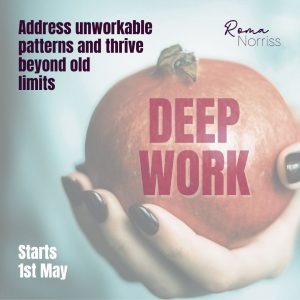by Roma | Sep 10, 2017 | Birth, breastfeeding, parenting, feminism, suffragettes
When women are impacted by birth trauma it can stay with them for many years, influencing their mental health and sense of self. The work of Mary Main et al (2005) in their Adult Attachment Interview demonstrated that a child’s attachment status can be predicted with 85% accuracy by their mother’s state of mind. It is therefore vital that mothers be supported towards emotional health when their wellbeing has such a profound significance for the next generation. This article will look at the what we have learned from running workshops for postpartum mothers, using an approach we call ‘After Birth’ and how midwives might bring elements of it into their practice. We will always be grateful for the day we sat together at Binnie’s dinning table, drinking tea and co-creating After Birth, honouring and resolving the birth of your baby. Both of us had worked (Binnie for many years) with women who wanted to process their birth trauma on a 1:1 basis, but we were inspired by the concept of women coming together to support each other to release the feelings they had been carrying and being able to see their experiences in a new light. We created a structure that allows women to share their story in an environment of deep listening and total acceptance, by encouraging them to notice specific aspects of their story related to personal power, connection and fear. The workshop also includes psychospiritual processing work and visualisation and other techniques from hypnotherapy. Our experience has been that through this process, women have been able to release emotion, appreciate a new perspective and come away...
by Roma | Sep 10, 2017 | Birth, breastfeeding, parenting, feminism, suffragettes
Roma Norriss reflects on the basis for an ecstatic birth I’m all about receiving love when it comes to birth. Receiving love is a bold, rebellious act; as it counters deep-rooted feelings of not receiving enough during birth and infancy. Receiving all the love and support that is there for us, is what allows us to step out of any place that is victimised by the process and choose to be present and powerful instead. This is not an easy task; it goes against the very grain of our conditioning. Last week a mother did a beautiful thing. She let me love her so fully that she literally melted into my body as she laboured. She absorbed the support and safety I could offer and said the only thing she was aware of throughout the process was her dear husband and I. Amazingly, she remained oblivious to the chaos and fear emanating from the paramedics and midwives that piled into the bedroom. Despite being commanded many times to lie on her back, her insurgent body somehow neglected to take heed and she persisted, warrior-like, leaning into me or kneeling at times and relishing the tight hold I had on her pelvis. She filtered out all the support she didn’t need and instead spaciously focused on receiving what was safe and nourishing. It was an inspiration to see. Preparing to receive is a fundamental and unacknowledged part of birth preparation. If we learn to release blocks to letting others in, we can let go and surrender to the process and allow ourselves to be held. Binnie A. Dansby, pioneer of...

by Roma | Mar 30, 2017 | parenting, trauma
My daughter was playing with a gaggle of kids the other day and they decided it would be fun to all pile into our small sauna. In the scuffle, one of the other kids was closing the door and accidentally caught her finger quite badly. On hearing her shriek, I ran and lifted her out. She was screaming, very distressed and for a while I didn’t know what had happened so I took her to sit down and just held her. I could see she was holding up her finger and that it was squashed and bleeding. She was besides herself with heavy sobs and wailing and I just said simply “Your finger got trapped” as she heaved and tried to tell me the story. I stayed close as she shuddered and shrieked and told fragments of the story and just offered simple observations such as “That really hurts, your finger got caught” and letting her know “I’m with you, I’m so sorry that happened.” After about 10 minutes her crying started to die down and I suggested “Shall we have another look?” She looked again at her finger and once more started bawling. I wanted to help her stay with the feelings of upset so she could release them fully from her system and recover from this mishap. I continued encouraging her to keep looking at the finger and crying more. When children cry after small bumps, the intensity of emotion can often feel disproportionate to the level of injury. We tend to want to appease them with plasters or medicines or stop them crying through reassurance that...
by Roma | Dec 6, 2016 | parenting, relationships, trauma
This scene is the aftermath of deep emotional work. Where all the lights… and eyes, were on me. An experience unparalleled except for in ceremonies where all my people showed up just for me – like our wedding or my beautiful blessingways. I have shared a fair bit on Facebook about how I have recently been going through an intensely emotional time. I have had to face several really hard things this year, culminating in an excruciating situation which triggered two core hurts from childhood. This pain I had spent my whole life avoiding finally found a way out in the shape of a breakdown where I spent four months unable to do much beyond feeling, shaking, crying, raging. I was deeply distressed most of the time, waking each night for several hours distraught, frozen in angst and horror. I was exhausted and out of my mind. My capacity to think has been very much inhibited, as well as my ability to parent or hold space. I have leaned on my community a lot. My listening partners have held me through this with such presence, patience, love and dedication. And somehow through the shame of being so needy, broken and unable to give back and feeling that this was all my own fault and I deserved it, I knew I needed to ask for even more. So I rallied my listening partners and asked if they would be willing to perform what Patty Wipfler has developed as a ‘Parent Rescue Squad’. This is where a parent in crisis summons support through one way extensive listening time. An intervention that...


